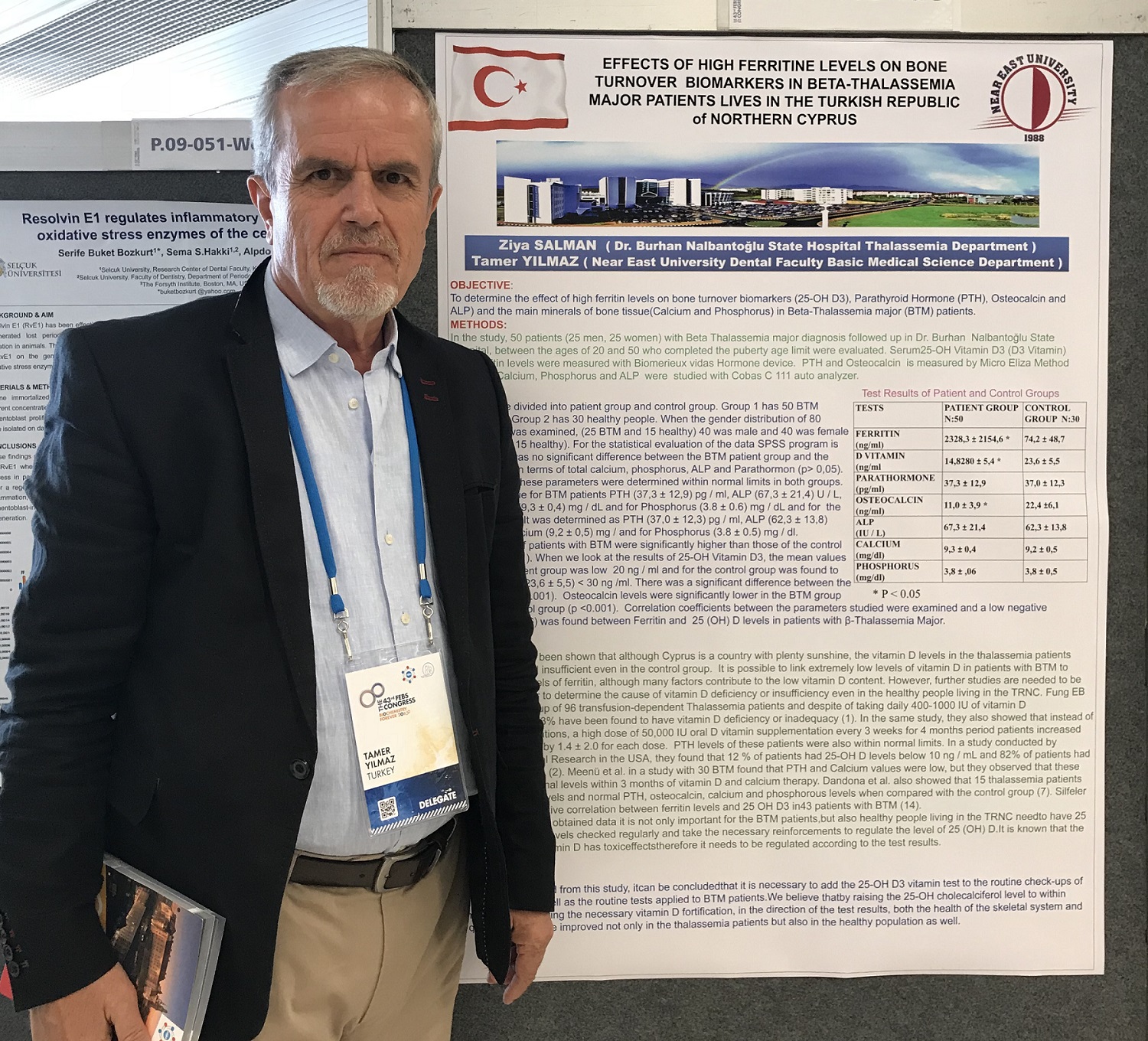
The Federation of European Biochemical Societies (FEBS) Congress is held in a different location each year. This year, the Czech Society for Biochemistry and Molecular Biology hosted the 43rd FEBS Congress in Prague on July 7–12. The 43rd FEBS Congress provided a platform for international scientific information exchange regarding the newest developments in biochemistry, molecular biology and related areas through plenary lectures presented by outstanding scientists including Nobel Laureates, a range of subject-specific symposia, extensive poster communications, and a variety of interesting workshops and other activities on related topics.
According to the Press release issued by the Directorate of Press and Public Relations Office of Near East University, Professor Tamer Yılmaz, Head of Basic Medical Sciences Department of Near East University Faculty of Dentistry, and Dr. Ziya Salman, MD at Burhan Nalbantoğlu State Hospital Thalassemia Department , conducted a joint study on "The Effects of High Ferritin Levels on Bone Turnover Biomarkers in Beta-Thalassemia Major Patients Living in the Turkish Republic of Northern Cyprus" and presented their study at the 43rd FEBS Congress held in Prague, the capital of the Czech Republic.
50 (25 male and 25 female) patients with Beta-Thalassemia Major disease, who were followed up in the Thalassemia Section of Dr. Burhan Nalbantoğlu Hospital, and 30 (15 male and 15 female) healthy people participated in the study voluntarily as the patient group and the control group. The participants were over the puberty age and they were between the ages of 20 and 50.
Within the scope of the study, male group (25 BTM patients + 15 healthy people) and the female group (25 BTM patients + 15 healthy people) were evaluated via blood tests to determine Ferritin, Vitamin D, Parathormone, Osteocalcin, ALP (Alkaline phosphatase), Calcium and Phosphorus levels. For the statistical evaluation of the data SPSS program was used. The total calcium, ALP, phosphorus and parathormone levels were determined within normal limits in both groups. So, the results show that there is no statistically significant difference between the BTM patient group and healthy people group in terms of total calcium, ALP, phosphorus and parathormone levels. The Ferritin levels in patients with BTM (Beta-Thalassemia Major) were significantly higher than those of the control group; Ferritin levels of female patients with BTM were higher than those of male patients with BTM as well. The results show that there is statistically significant difference between the patient group and control group in terms of ferritin levels. 25 OH-Vitamin D3 mean values were determined very low in patients with BTM compared to those of the control group. It can be said that there is a significant difference between the patient group and the control group. The results also show that there is statistically significant difference between patient group and control group in terms of osteocalcin levels.
Correlation coefficients were examined and a low negative correlation (-196) between ferritin and (OH) D vitamin was determined in patients with BTM.
The results of the study clearly shows that the vitamin D levels are low in patients with BTM and insufficient even in the control group although Cyprus is a country with plenty sunshine.
The study concludes that it will be appropriate to add 25-OH-D3 vitamin test to the routine check-ups of healthy people as well as to the routine tests applied to the patients with BTM. The study underlines the crucial role of these tests in providing opportunity to take the required reinforcements to regulate 25-OH-D3 which is essential to improve the health of the skeletal system and the quality of life.